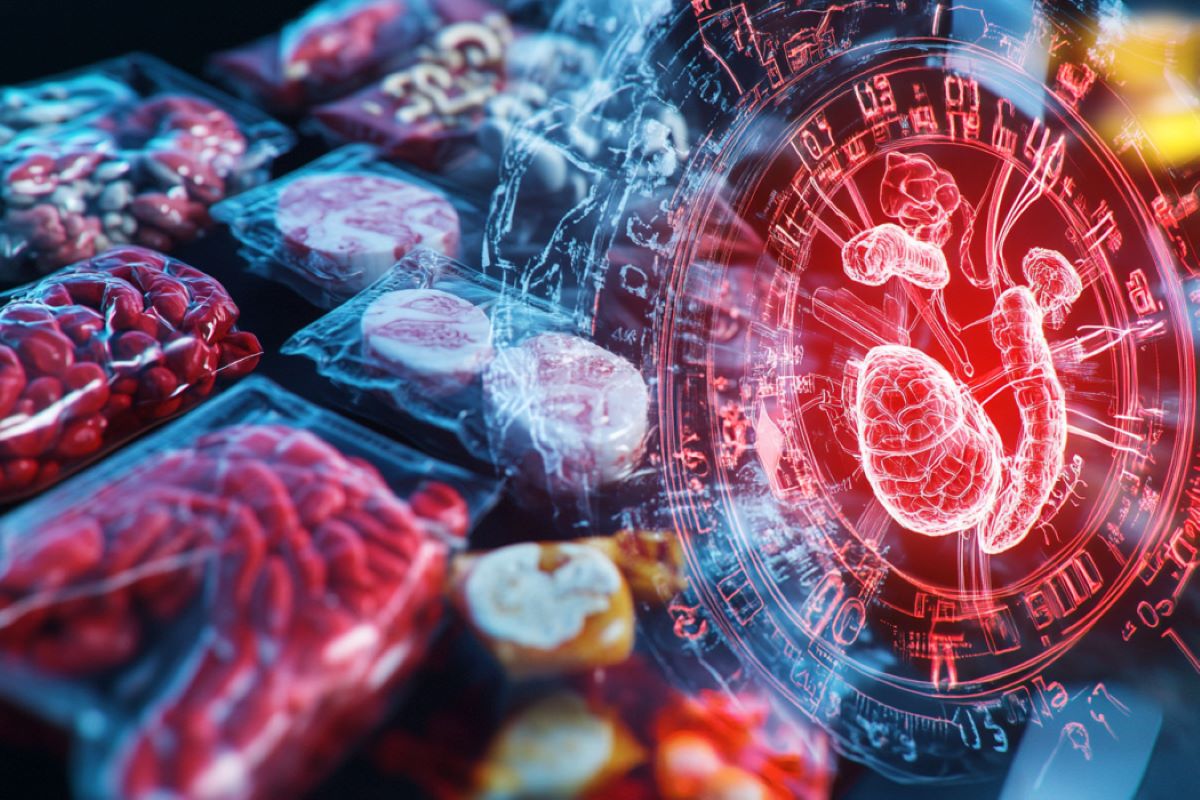Accelerated Biological Aging Linked to Medically Transduced Diet – Neuroscience News
Summary: Processed foods are linked to accelerated biological aging, as confirmed in a study that examined more than 22,000 people. Researchers have found that these foods, which contain a lot of additives and preservatives, accelerate the body’s internal aging process, without any nutritional value. These findings highlight the potential need for dietary guidelines that also consider food processing conditions and promote whole food consumption to promote long-term health.
Important Points:
- Eating more processed foods is associated with accelerated biological aging, as measured by blood biomarkers.
- Processed foods, high in additives and low in fiber, can affect glucose metabolism and gut health.
- Biological aging reflects the actual physical state of health, which may differ from chronological age, highlighting the dangers of a diet rich in processed foods.
Source: IRCCS
A study carried out by the Epidemiology and Prevention Research Center at IRCCS Neuromed in Pozzilli, in collaboration with LUM University of Casamassima, shows that the high consumption of highly processed foods is associated with the acceleration of biological aging , regardless of nutritional value. of food.
The results were published in a popular journal The American Journal of Clinical Nutrition.

Italian researchers analyzed data from more than 22,000 participants in the Moli-sani Study, one of the largest population-based cohorts in Europe, and used more than a dozen different blood biomarkers. three to measure natural age.
Unlike chronological age, which is based on date of birth, biological age reflects the natural state of our body, including organs, tissues and systems, and may differ from chronological age. events.
Using a detailed food frequency questionnaire, the researchers were able to estimate participants’ consumption of processed foods, which are foods made in part or entirely from items not used in the kitchen (e.g. , hydrolysed proteins, maltodextrins, hydrogenated fats), often. contains various additives, such as dyes, preservatives, antioxidants, anticaking agents, flavor enhancers and. good things.
Processed foods include not only snacks or sugary drinks, but also ‘unhealthy’ products such as processed or packaged bread, fruit yoghurt, breakfast cereals or other types of meat, to give a few examples.
The study showed that the high consumption of processed foods is associated with a significant acceleration of the biological aging of the participants. In fact, people appeared to be older than their chronological age.
In fact, biological aging is the “internal clock” of our body, which can tick faster or slower than the age marked in the calendar, which shows the real state of health of the organism.
“Our data – says Simona Esposito, a researcher at the Department of Epidemiology and Prevention and the first author of the study – shows that the high consumption of processed foods does not have a negative effect on health in general, but it can also accelerate aging itself, suggesting a link beyond the low nutritional value of these foods”.
“The mechanisms by which the most consumed food can be harmful to human health are not yet completely clear – explains the researcher Marialaura Bonaccio, a nutritionist at the Research Department of Epidemiology and Prevention-IRCCS Neuromed.
“Besides being nutritionally deficient, high in sugar, salt and saturated or trans fat, these foods are heavily used in an industry that actually changes their food, as a result they lose nutrients and fiber .
“This can have important consequences for a series of body functions, including glucose metabolism, and the structure and function of the gut microbiota. Also, these products are often wrapped in plastic packaging, so they become vehicles of toxic substances in the body”.
“This study” – adds Licia Iacoviello, director of the Epidemiology and Prevention Research Center at IRCCS Neuromed and full professor of Hygiene at LUM in Casamassima – “prompts us to re-examine the current dietary recommendations, which should including warnings to reduce the consumption of highly processed foods in our daily diet.
“In fact, some nutrient-dense foods can be described as ultra-processed, and this suggests the need to guide people to choose foods that process the condition of prepare food”.
About this research on aging and diet
Author: American Bonanni
Source: IRCCS
Contact: America Bonanni – IRCCS
Image: Image credited to Neuroscience News
Basic research: Open access.
“Excessive food consumption is associated with accelerated natural aging in the Moli-sani Study” by Simona Esposito et al. Journal of Clinical Nutrition
Summary
Highly processed foods are linked to accelerated biological aging in the Moli-sani Study
Rear end
A healthy diet has been linked to biological aging. However, nutritious food is only one aspect of the health potential of food, and recently, increasing attention has been focused on the characteristics of non-nutritive foods, which such as preparing food.
Goals
To examine the relationship between the consumption of highly processed foods (UPF) and biological aging measured by circulating blood biomarkers.
Methods
Cross-sectional analyzes were performed on 22,495 participants enrolled in the Moli-sani Study (2005-2010, Italy). Food intake was assessed by 188 food frequency questions. UPF was defined according to the Nova group and was calculated as the ratio (weight ratio; %) between UPF (g/d) and total food intake (g/d). Dietary quality was assessed by the Mediterranean Diet Score (MDS; from 0–9). A deep neural network based on 36 circulating biomarkers was used to combine biological age (BA), and the resulting difference (Δage = BA – chronological age) – an index of aging nature—was tested as the dependent variable in multivariate linear regression analyzes including. known risk factors.
Results
The mean age of Δ in this population was −0.70 (standard deviation ±7.70) years. In multivariate adjusted analyses, higher UPF intake was associated with faster Δage. [β = 0.34 years; 95% confidence interval (CI): 0.08, 0.61 for the last fifth compared with the first). This association was not linear (P value for overall association <0.001; P value for nonlinearity = 0.049). Inclusion of the MDS into the model slightly attenuated this association by 9.1% (β = 0.31 years; 95% CI: 0.04, 0.59).
Conclusions
A diet rich in UPF was associated with an acceleration of biological aging in a large sample of Italian adults. The poor nutritional composition of highly processed foods weakly accounted for this association, suggesting that biological aging could be adversely influenced by nonnutrient characteristics of these foods.
#Accelerated #Biological #Aging #Linked #Medically #Transduced #Diet #Neuroscience #News
